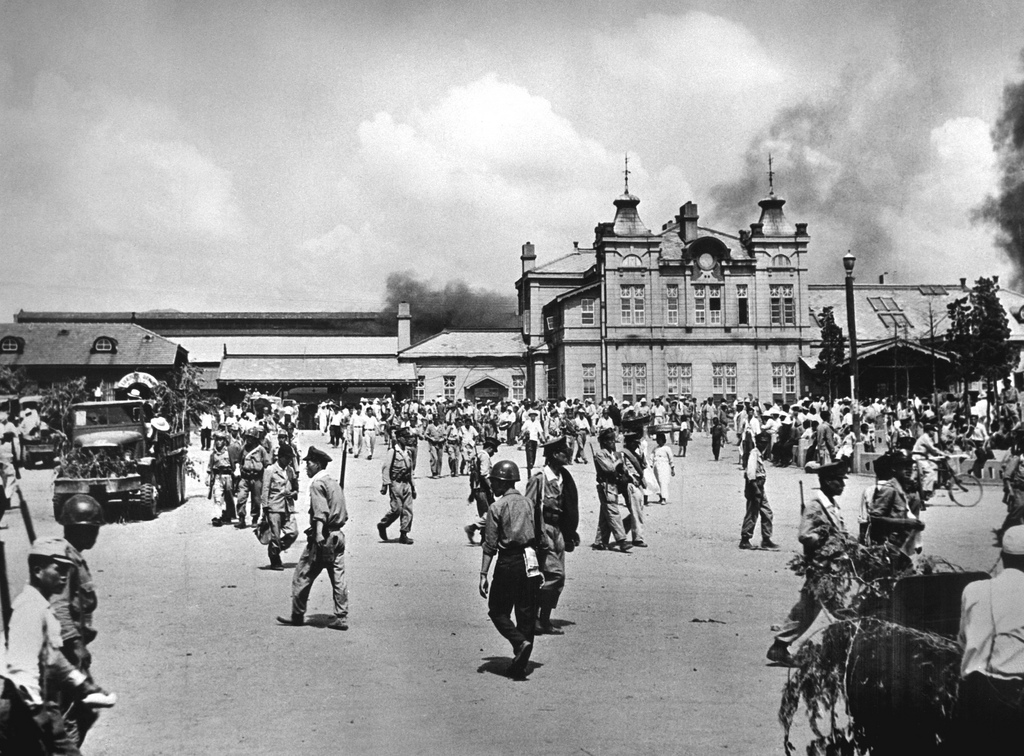A Look Back: The 24th Infantry Division During the Korean War
However, in the 24th’s attempts to fight against the KPA in Taejon, they delayed the KPA’s advances, gaining time for other forces to build a defensive perimeter around Pusan. Later that summer the Battle of the Pusan Perimeter would take place, one of the first battles that the U.S. Army won during the Korean War. It lasted from August 4 to September 18, when the KPA collapsed and retreated in defeat. This defeat was recognized when the 24th regiment was awarded the Republic of Korea Presidential Unit Citation. From the 24th Infantry, both Cornelius H. Charlton and William Thompson received posthumous Medals of Honor for their outstanding efforts in leading the regiment after their commanding officers were wounded.
Although the regiment accomplished many milestones during the war, one of their main struggles was confronting discrimination from white soldiers and commanding officers in the U.S. Army. One such case was Lieutenant Leon Gilbert, a decorated World War II combat veteran, who was court-martialed and sentenced to death for refusing an order from the 24th’s commanding officer in the fall of 1950. The order commanded Gilbert to return with twelve of his men to a forward position after they had been forced to withdraw because they were under heavy machine gunfire. Gilbert recalled in a letter to his wife, “This would have caused me to draw fire not only from the enemy but from our own troops, not knowing who we were and firing on us. An entire company was ordered to attack this position later, but had to withdraw. I only had 12 men and no automatic fire.” Because of Gilbert’s refusal, he was arrested and tried on the spot without any witnesses. After being accused of insubordination and cowardice, a court-martial sentenced him to death.
The incongruent sentencing was picked up by national media outlets back in America and led to protests that put a spotlight on segregation and discrimination in the U.S. military. Citizens were moved to learn that injustices continued in the Army even after it had been mandated to end segregation and discrimination. The event sparked the American Legion and the National Negro Council to get involved: together they collected over 600,000 signatures on a petition for his pardon. Eventually, President Harry S. Truman shortened his sentence to 20 years of imprisonment at hard labor, dishonorable discharge, and forfeiture of all pay and pension allowances.
The Gilbert case along with others that afflicted the regiment shined a light on the persisting issues involving race in the U.S. military. Black regiments suffered many casualties due to the U.S. Army’s negligence of them. The 24th often-times lacked replacements and supplies, including shoes. When Gilbert’s trial was noticed, other stories began to filter out through black news sources of misdeeds committed by white officers against the black troops they were leading.
Integration and equal treatment in the U.S. Army were not achieved until 1963, when Secretary of Defense Robert McNamara issued an Executive Order that made it the responsibility of all commanding officers to ensure that no discriminatory actions were being practiced in their units. Today, 21.5% of all active duty soldiers in the U.S. Army are black.

